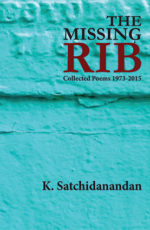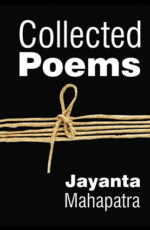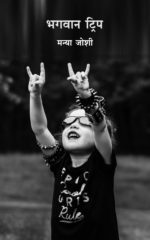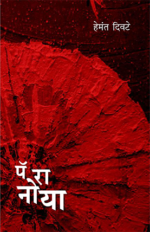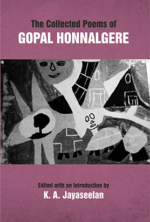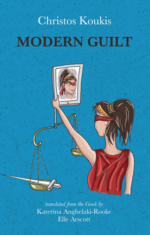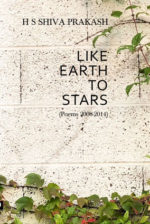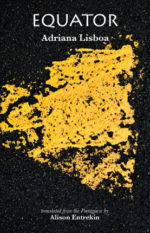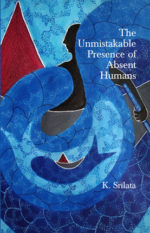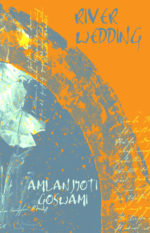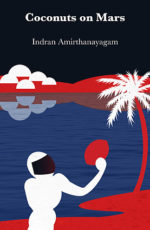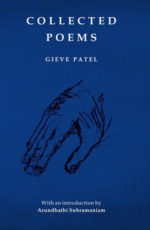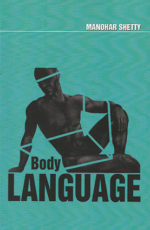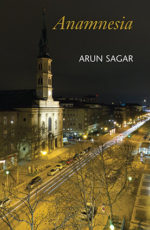-
The Missing Rib (PB)
$40About the Book
This is a dark, powerful, pulsating collection of poems, the effect of which continues to reverberate, disturb and shock one out of one?s complacency long after one has finished reading them.. The Hindu (reviewing So Many Births) Satchidanandan’s poetry is an irresistible mix of the real, surreal, intellectual, sensual, and spiritual. Satchidanandan does not shy away from asking deeper existential questions -of being, freedom, love, compassion, nature, language, death Shanta Acharya (reviewing While I Write in Modern Poetry in Translation) Satchidanandan’s ‘I’ tells stories about itself, and like all good story-tellers, by telling its own story, his ‘I’ ends up telling stories about others as well. There is an ethical bent in this aesthetic enterprise, where fondness and empathy towards others enter your lines and transform your poetry the way they once transformed your life. Manash Bhattacharya (reviewing While I Write in Biblio) K. Satchidanandan is definitely not a poet who keeps aloof from the world. He is a poet on a journey.. Poetry for him is a cry against all walls? It is his cosmopolitanism that makes Satchidanandan interesting beyond India. Dr. Wolfgang Kubin (Reviewing the German collection, Ich Globe Nicht an Grenzen in Orientierungen: Zeitschrift zur Kultur)
-
COLLECTED POEMS
$60About the Book
?Mahapatra?s is an elite art, aimed at a small, discriminating readership.?- Bruce King
Jayanta Mahapatra is indisputably the most innovative, progressive and Anglophile poets of modern India. He is intrinsically touched by the stark realities of our country, and writes instinctively about ? hunger, myths, traditions, customs, rituals, love, passion, anger, frustration, sex, the self and the eternity, the socio-cultural diversity with adroitness. His extant work exudes post ?colonial leanings and spirit invariably. Post- colonialism refers to those theories in texts, political aspirations and modes of activism that spur to challenge structural inequalities and to establish social justice. Mahapatra?s poetry unravels many facets of post- colonialism as haunting past, search for identity and roots. Mahapatra writes to enliven the native tradition protesting the former colonizers and establishing national identity and integrity. He evokes the sense of Indianness both in content and form through his poetry relentlessly. His symbols and images are, however, evocative, suggestive and pivotal for linguistic versatility.- Mirza Sibtain Beg
-
-
The Collected poems of Gopal Honnalgere
$30About the Book
‘Thank God all men need not drink water from the same source’: this line from one of Gopal Honnalgere’s poems collected here is perhaps the most suggestive comment that can be made on these poems as they draw their ‘water’ from sources seldom used in the Indian poems in English we are generally familiar with. An act of retrieval as well as of love, this collection lights up an ill-lit by-lane seldom taken by the urbanised Indian poets in English : the Zen of the Everyday and the Small: objects, insects, people, relationships. I read these in Malayalam where they were quite at home and so they will be, in any Indian language.
K. Satchidanandan
-
Inverse
$20About the Book
Rodríguez Núñez’s poetry has long been well-received in the Spanish-speaking world, by his predecessors and contemporaries alike. Juan Gelman (Argentina), for many the best contemporary Latin American poet, considers him to be a “true poet… baptized by poetry at birth.” And Raúl Zurita (Chile) declares, “Víctor Rodríguez Núñez’s poetry represents a profound renewal of poetic language. It forces us to see that poetry accounts for itself precisely because it accounts for the world.”
Likewise, his work has made a great impact far beyond the borders of the Spanish language. Lasse Söderberg (Sweden) writes, “[b]eing an independent Cuban poet is hard. Supporter or dissident?… Rodríguez Núñez doesn’t write the way either side expects him to.” John Kinsella (Australia) notes this poetry demonstrates a “stunning brinkmanship in imagery and poetic imagination that leaves the reader breathless and astonished. Technically, his is one of the most assured voices in contemporary poetry.”
And then, to ask myself, as his translator into English, how to cross the borders of language? With the same defiance found in the original. To avoid the trap of exotification, striking a balance between… the strangeness of certain words unlikely to
be associated with what is “typically Cuban,” and the similar strangeness of keeping words only a Cuban would understand. Inverse serves to introduce Indian readers to one of contemporary poetry’s most relevant, powerful voices. These poems challenge every limit; here, commitment and experimentation, emotion and lucidity, what is another’s and our own, the writer and the reader, come together.Katherine M. Hedeen
-
CALLING OVER WATER
$16About the Book
Praise for Priya’s Poetry:
Written over a decade, Calling Over Water features poems in three movements. The first trails a wake of lacunae and dislocation but also remembrance and gratitude for departed loved ones. Next, the tempo shifts as the mind sifts through dazzlement, disappointments, riddles and resolutions. Poetry making and identity are explored and mapped. In the last movement, geographies of space and time are located through art, history and the act of journeying. The self is in part reconstituted and returned as a retuned being. “Are you recyclable?” “Why does art leap out of the window when there’s no terrorist attack, only collapse?” “What if you stop smelling of loathing?” These are some of the brave and probing questions Priya Sarukkai Chabria poses in Calling Over Water.
-
Shorelines
$14About the Book
In his poem ‘Sailing to Byzantium’, W.B.Yeats sees himself transformed into a golden bird after his death. The bird is meant to entertain the city’s lords and ladies by singing of ‘what’s past, or passing, or to come.’ In the real and imaginary Byzantiums we inhabit today, Adil Jussawalla’s poems have a similar purpose – to tell, foretell, and uncover the ravaged face of the present.
‘He’s there on that street, making sounds that belong
to lands nobody knows, not in this world,
past sailing, past understanding.’
– from Jussawalla’s poem ‘Navigation Marks’
Be afraid. Be very afraid.
– Jerry Pinto
These lines by Jussawalla—with their images of the maritime, the mortal, and the beyond— drop anchors that stun as they fall through hulls and remembrance. There is a sense of being at once behind the helm of The Flying Dutchman, and trying to find sea-legs.
This homage to a city, where tarpaulin allies with sky and weather, is rich in puns
(“Faults not our own”-The Earthquake) and absurdity (“This number does not exist./ This port does not exist./ They should have told you.”).
Shorelines is a treasure as immeasurable as its shipwrecks’.
–Arjun Rajendran -
Supremo 16/70
$0About the Book
Miguel-Manso has published 11 books of poetry since his debut,
Contra a manhã burra(2008). His critically acclaimed collections include Santo subito (2010), Ensinar o caminho ao diabo (2012), Tojo: Poemas escolhidos (2013), Persianas (2015) and Mortel (2018). He has collaborated with several theatre companies and directors, and has been invited as a participating speaker to literary festivals, lectures and poetry readings, in and outside of Portugal. He has written, produced and directed (in collaboration with João Manso) the feature film Bibliography (2013) – a journey on a raft down two Portuguese rivers and through five hundred years of literature. -
Modern Guilt
$0About the Book
A sense of evening pervades Christos Koukis’ Modern Guilt, translated into English by Katerina Anghelaki-Rooke and Elle Arscott. This twilight is historical, ridden by the background of the financial crisis in Greece, as much as poetic, where ‘we are rich in such a way that no bank condescends to accept us’. But like all things Greek, there is the sun, which peeks at odd places and throws light on hidden corners. In Koukis’ world, the sun glints, before setting at nine o’clock behind the Acropolis, even if ‘deep down, the light makes things difficult’.
It is in this sense that Modern Guilt holds a mirror to us, our anxieties and vanities. The earthquakes in Modern Guilt are political. History is ugly and ‘the country does not go to sleep with clear conscience’. Continuing in the tradition of the modern Greek masters, Koukis has use for antiquity, but this antiquity is not removed from history, its pain and betrayal. It provides no respite, only hard lessons. The financial earthquake of Greece is but one more link in that story.
Yet in its moments of crises, hope shines through —‘there is a feeling of life that never abandons us, an honest victory’. There is redemption in love and in the hope of love. Amidst the shadows, for Koukis it ultimately ‘doesn’t matter’, for even ‘Dresden was rebuilt and now it shines’.
-Amlanjyoti Goswami
-
Like Earth to Stars
$20About the Book
When Shivaprakash (b.1954) entered the arena of Kannada poetry in the ’70s, Kannada modernism had already exhausted its possibilities. Those disenchanted with the modernist introversion spearheaded a new trend called Dalit-Bandaya movement. Critical of both modernist self-consciousness as well as the loud politics of rebel writers, Shivaprakash forged his own poetic idiom, at once sensuous and spiritual, political and philosophical, inspired by the regional folk and Bhakti traditions of poetry. He moved away from the monologic and didactic modes of contemporary Kannada poetry to pioneer a new dialogic-mode in which personal and social concerns enter into debate with a multiplicity of Indian cultural traditions. His more recent poems of the last couple of decades written in different parts of the world have broadened the essentially dialogic nature of his poetry, engaging in wide-ranging debates with other cultures and civilisations without sacrificing his rootedness in his own Kannada-specificity. Currently Professor of Theatre Studies in Jawaharlal Nehru University, New Delhi, Shivaprakash is also an eminent playwright and translator. He has held several important administrative positions in the past including Editor, Indian Literature, and Director, Nehru Centre, Berlin. His works have been translated into various Indian and foreign languages including Spanish, Italian, Romanian, Lithuanian, German and Arabic and won him many prestigious awards in India including the Sahitya Akademi and Sangeet Natak Akademi awards. He is Honorary Fellow, School of Letters at the University of Iowa, USA. Shivaprakash’s major interests include yoga, tantra and other Indian spiritual traditions as reflected in two English books, Everyday Yogi and Guru: Ten Doors to Ancient Wisdom.
-
Equator
$12About the Book
Reading Adriana Lisboa’s poems one becomes aware that in the clear light of their precise articulations something secret is taking place. That “something / taking place in secret” can be as anguished as the poems are calm; as wild as the poems are poised. She dares ask any question and – even more courageously – dares answer (or accept that there is none). Poems that are tethered to terra firma can cut loose without warning; knowing can ambush you from anywhere. There are no dirty tricks in her work, no showy gestures. Instead, there is the animating intelligence of life lived acutely, on and through words, this impossible sustenance that poets seek, and only rarely – as in Lisboa’s case – find. In her able translator Alison Entrekin’s hands, Adriana Lisboa’s poetry offers an exhilarating oxygen, “freeing in the word / what the word seals in”.
Sampurna Chattarji, poetry editor of The Indian Quarterly
-
The Unmistakable Presence of Absent Humans
$16About the Books
In a world of loss and absences, K. Srilata’s concerns go beyond the personal into larger issues of disappearing languages and people in conflict-ridden zones. Her sensitive eye for detail, the unexpected images and her use of language that can be both sharp and delicate, make these poems memorable. – Menka Shivdasani, Indian poet
K Srilata, in writing this important collection, has given voice to all who struggle to find meaning, who wonder endlessly what that other reality might be – the one that lies just beyond our reach, just beyond the picture frame. Her writing invites us to see the unanswered questions as doorways back into our lives. I love Srilata’s book, her light touch, her true poetic-voice, and her ability to catch a poem on the wing and transmit it to her willing and excited reader. – Murray, Poet and editor of Poethead
-
River Wedding
$16About the Book
The hundred pages of this collection give scope enough to show the generosity of Amlanjyoti Goswami’s perception of the world. This is both intimate and ambitious, paying attention to the gentle nuances of family life without losing sight of the disturbing ways that history unfolds. Moments of revelatory strangeness are often entered through a child’s viewpoint – ‘sunlight talks to Zenzi…’ – but the effect never sentimental. The whole collection could be dedicated, in the delicate wording of a poem simply titled Lunch: ‘To life, more life. // The kind that,like a child, / takes in a morsel, when nobody’s looking.’ The deeper messages speak quietly, but all the more convincingly for that, and the points of arrival are not grand visions but ‘a fine ordinariness’. What renders this quality fine is Goswami’s sure and economical way with language – ‘we wear the dusk of sorry news’, or the blind flautist’s sensation of ‘the grain in the wood, the press and leave / of my fingers’. There is no postcolonial uncertainty in this marrying of Indian perspectives and the English language, whose literary heritage is graciously acknowledged, with nods to Soyinka and Achebe, to Walcott and even (with a healthily wry smile) to Matthew Arnold when he turns up in a second-hand bookstall in Chandni Chowk. Rather, there is a generous welcome to the world – with the freshness of an outsider’s view sometimes, but always with a sense of hospitality. -Philip Gross
-
Coconuts on Mars
$12About the Book
Indran Amirthanayagam has been writing poems that will outlive his time, and they have been translated already into several world languages. These new poems both look bravely into the future as they turn back, at the same time, to the remembered mists of his childhood. Indran embraces various contradictions in his capacious heart and mind, that have enabled him to love in many languages, to cross all sorts of borders, geographic, linguistic, and political, and to champion liberty of expression wherever he goes. Indran?s is a journey beyond limits, and these poems take you much of the way along with him on his restless exploration of his multiple worlds.
-Shashi Tharoor -
Cosmopolitician
$16About the Book
‘In his latest book Cosmopolitician, Mustansir Dalvi counters the outside world with poems seldom seen in the work of other poets. In seven sections; poems dealing with the larger scheme of life are conveyed in weighted words that are prevented from sinking by the structure and content into which they are placed. He is able to explore a wide range of styles and emotions that carry the reader away. And, as deep into the personal world as literature can take us: :My name is mud, / gold runs in my veins, grouting an imperfect dam that holds.”‘
– Jayanta Mahapatra, author of Sky Without Sky, A False Start and A Rain of Rites -
COLLECTED POEMS
$60About the Book
?Mahapatra?s is an elite art, aimed at a small, discriminating readership.?- Bruce King
Jayanta Mahapatra is indisputably the most innovative, progressive and Anglophile poets of modern India. He is intrinsically touched by the stark realities of our country, and writes instinctively about ? hunger, myths, traditions, customs, rituals, love, passion, anger, frustration, sex, the self and the eternity, the socio-cultural diversity with adroitness. His extant work exudes post ?colonial leanings and spirit invariably. Post- colonialism refers to those theories in texts, political aspirations and modes of activism that spur to challenge structural inequalities and to establish social justice. Mahapatra?s poetry unravels many facets of post- colonialism as haunting past, search for identity and roots. Mahapatra writes to enliven the native tradition protesting the former colonizers and establishing national identity and integrity. He evokes the sense of Indianness both in content and form through his poetry relentlessly. His symbols and images are, however, evocative, suggestive and pivotal for linguistic versatility.- Mirza Sibtain Beg
-
Collected Poems
$16About the Book
” … a poet who has been a quietly enduring presence in the country’s literary scene for five decades … ” “It was my first realization that a gaze unclouded by sentiment could evoke something truer than sympathy. That an unspoken poignancy could lie in the act of not averting one’s gaze. That poetry could lie in a simple unblinking intensity of attention.”
-
Body Language
$10About the Book
Elegy One by one they fall away, Some gently like brown leaves. Others with gnarled roots Hold fast to their Bleak and emptied plot To which no water or salt, Prayer or miracle can Grant another lease. But sure as the turning days, There will be

